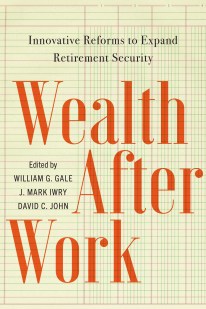Impact of financial investment on the individual’s confidence of happy retirement life
By Yan-Leung Cheung, Billy S C Mak, Hao Shu & Weiqiang Tan The study examines the impact of financial investment on the individual’s confidence in happy retirement life using data from 735 respondents in the Bank Consortium Holding Limited (BCT) Public Opinion Survey on Retirement Happiness in 2017. The result shows that holding the investment portfolio with savings and risky assets is positively and significantly correlated with the individual’s confidence of happy retirement life, and this relationship is more pronounced...










